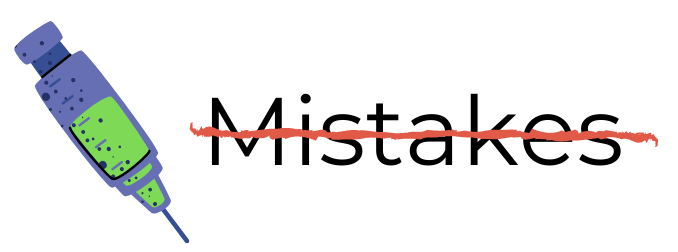Good morning! It has been 310 days since the first documented human case of COVID-19.
I am still getting over whatever I am sick with, so today will be focused on updates about my experience with being ill as well as a response to a reader question about giving advice to religious institutions.
As usual, bolded terms are linked to the running newsletter glossary.
Keep the newsletter growing by sharing it! I love talking about science and explaining important concepts in human health, but I rely on all of you to grow the audience for this:
Now, let’s talk COVID.

What am I doing to cope with the pandemic? This:
Getting sick in a pandemic
I had my COVID test today. It was a bit less gentle than the one I had about a month ago.
It’s important that this test come back with rapid turnaround. My wife and I would very much like to be at Yom Kippur services for our synagogue.
Thank you to those of you who reached out to wish me well. I am feeling substantially better; my fever has broken and I am back working again, though not at 100%. I still have intermittent discomfort and headache. I don’t know what I am sick with but it has produced symptoms that are different from almost anything else I have had before.
Thankfully, my SpO2 (blood oxygen saturation) is still well above 90% and my blood pressure is at a comfortable 122/80. The blood pressure was measured today at the doctor’s office, while some months ago I bought a pulse oximeter which can measure blood oxygen saturation. Given the COVID situation, I think it’s as essential a piece of home health equipment as a thermometer.
Surprisingly, I lost 2 pounds over the three days I was most ill. That’s about 1% of my body weight, which really goes to show that this had an impact on me.

Earlier this week, reader Jamie J. left the following comment:
Glad that you feel better and hope you have a good rest of your High Holy Days! You mentioned that you were advising your synagogue on safety protocols. Do you have any advice for those of us who are not experts and are trying to provide scientifically-grounded advice to our own religious communities?
I think this is a great question. In the past, I might have recommended CDC guidance as a blanket source of information, but unfortunately I feel the CDC has become less reliable in recent months.
My best advice is to rely on local health authorities. I believe that most states have a public health apparatus that is interested in remaining apolitical and providing advice to their citizenry.
In the Jewish community, we have been working very closely with state and city authorities to develop plans for our gatherings. This has been a multilevel effort. I have been in touch with folks at different levels of government, as have community organizers across the Jewish world in New York and also within my own synagogue.
There is a certain reluctance from public officials to provide advice to religious institutions for fear of violating First Amendment rights, at least in the US. This is not unfounded, but I have found that a proactive request for advice from the religious institution will get around these concerns.
I honestly think that this local outreach approach is the way to go. Anything I could say here would be too broad and any advice I could give would not think of local concerns. Every institution is in a different place and has different needs based on that location. Community leaders who wish to protect whatever group they represent need to reach out to local authorities.
I am personally available—feel free to share my newsletter or contact information—to answer limited questions on basic science in the event that any such community leaders would like some insights. I’m afraid, though, that there will be a point where my knowledge of facts at 30,000 feet would be insufficient and instead a knowledge of facts on the ground would be far more relevant. Still, if I can help, I consider it a duty to offer. Religious and community services are essential to help combat the social and emotional stresses of this ongoing global tragedy.
Join the conversation, and what you say will impact what I talk about in the next issue.
Also, let me know any other thoughts you might have about the newsletter. I’d like to make sure you’re getting what you want out of this.

This newsletter will contain mistakes. When you find them, tell me about them so that I can fix them. I would rather this newsletter be correct than protect my ego.
Though I can’t correct the emailed version after it has been sent, I do update the online post of the newsletter every time a mistake is brought to my attention.
Correction: Yesterday’s newsletter contained the line “My physician told me that I shouldn’t necessary go over this endlessly…”; the word “necessary” was leftover from an earlier version of the sentence. It should have read “My physician told me that I shouldn’t go over this endlessly…”
This has been corrected online.
Thanks for reading, everyone!
See you all next time.
Always,
JS


